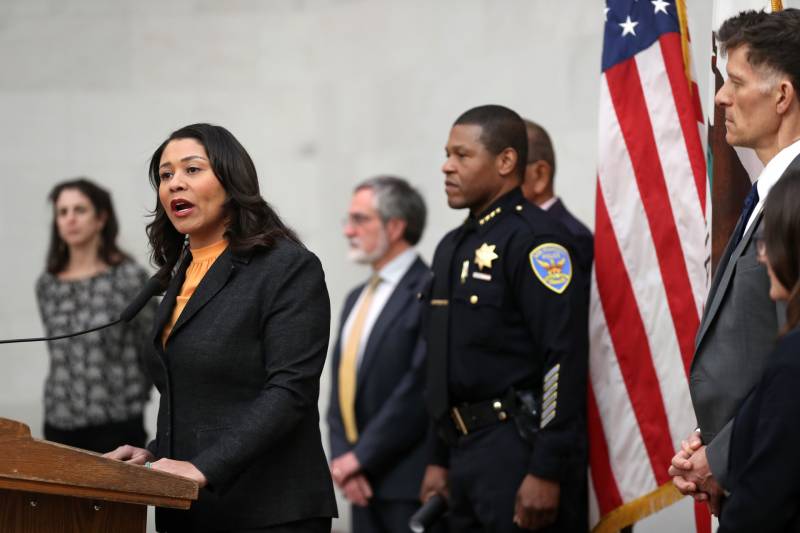San Francisco Mayor London Breed unveiled a proposed budget Friday that includes pulling $120 million from law enforcement agencies and putting it into programs that support the city’s largely underserved Black community.
Although the specific spending details are still unclear, Breed’s proposal would direct 60% of the funds to mental health, wellness and homelessness initiatives in the Black community, while 35% would support education, youth development and economic opportunities. The remaining 5% would go toward developing a plan to replace police officers with social workers as the main responders to noncriminal calls involving the homeless and mentally ill.
Those allocations reflect spending priorities conveyed by Black residents during a series of recent community meetings and public surveys led by the city’s Human Rights Commission, Breed said.
“It’s important that we listen to Black voices. It's important that we allow Black people to lead this movement,” Breed said at a press conference Friday. “We have to listen to the people in the community. We have to listen to the people who have seen and lived the devastation resulting from decades of disinvestment.”

